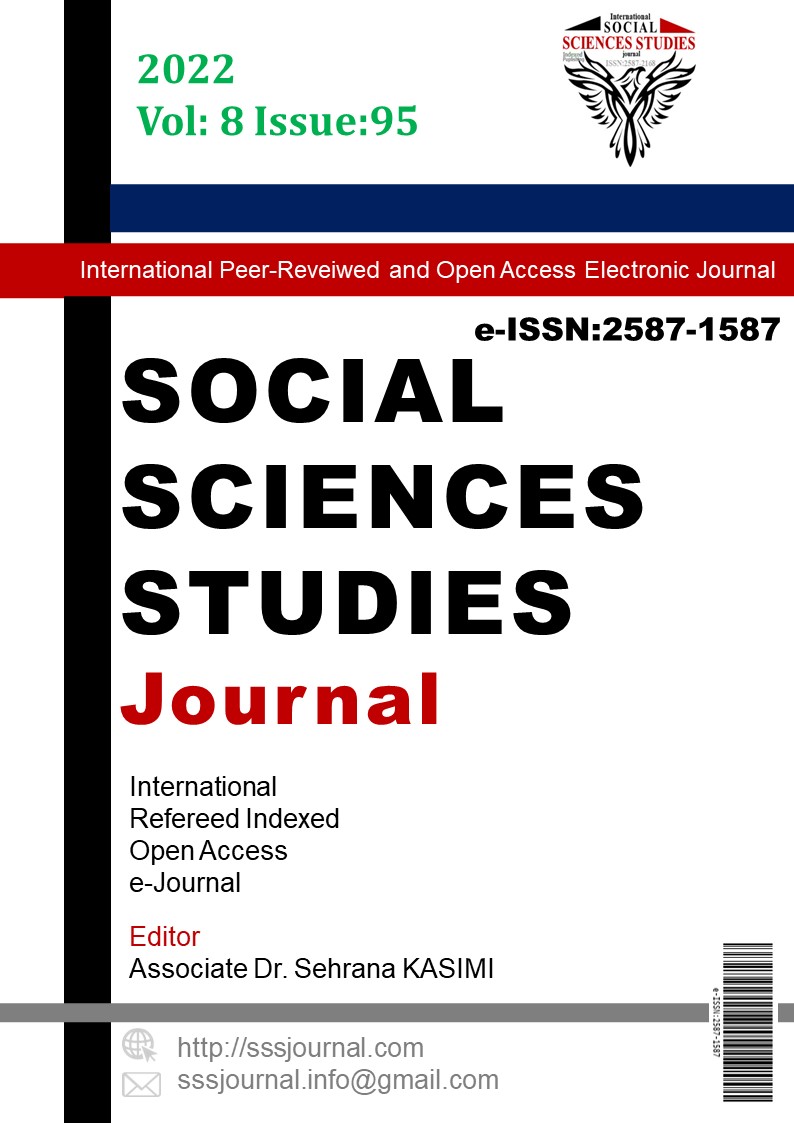Author :
Abstract
Pandemiler çok sayıda insanın ölümüne neden olurken tüm dünyayı yok etme potansiyeline sahiptir. Dünya, Mart 2020'den bu yana COVID-19 olarak bilinen yeni bir tehditle karşı karşıya kalmıştır. Birçok ülke vatandaşlarını korumak amacıyla sınırlarını kapatmış, uçuş kısıtlamaları getirmiş ve karantinalar uygulamıştır. COVID-19 önlemleri, normal yaşam koşullarını önemli ölçüde değiştirmiş ve beraberinde ekonomik ve sosyal davranış değişiklikleri gerektiren “yeni normaller” getirmiştir. Bu çalışmanın amacı, COVID-19 pandemisinin İstanbul restoran endüstrisi üzerindeki etkisini değerlendirmektir. Otuz restoran yöneticisiyle COVID-19 salgınının ilk üç ayında aldıkları önlemler ve karşılaştıkları mali ve idari zorluklar hakkında röportaj yapılmıştır. Bulgular, restoranların nakit akışlarının bozulduğunu ve bir likidite kriziyle karşı karşıya olduklarını göstermiştir. Menü azaltma ve sınırlı hizmet kapasitesi gibi maliyet düşürücü önlemler, işletmelerin itibarını zedelemiştir. Restoranlar personel giderlerini azaltsa da katılımcılar günlük, haftalık ve aylık kazançlarında önemli düşüşler olduğunu bildirmişlerdir. İşletmeler, hedef kitleleri dışındaki grupları da barındırarak yeni bir hizmet anlayışı geliştirmek zorunda kalmışlardır. Restoran türü, menü fiyatları ve hizmet, pandemi döneminde tüketiciler için daha önemli hale gelmiştir. Restoran sahipleri ve yöneticileri, krizin olumlu bir etkisi olarak müşterilere duyulan güven duygusunu dile getirmişlerdir. Katılımcılar, hükümetin vergileri azaltarak, kira ve mali destek paketleri oluşturarak sorunu çözmesini beklemektedirler.
Keywords
Abstract
Pandemics have the potential to wipe out the entire world while killing a large number of people. The world has been facing a new threat known as COVID-19 since March 2020. Most countries have closed their borders, imposed flight restrictions, and implemented quarantines in an attempt to protect their citizens. COVID-19 measures significantly altered normal living conditions and established what is referred to as "new normal" necessitating economic and socio-behavioral changes. The purpose of this study is to assess the impact of the COVID-19 pandemic on the Istanbul restaurant industry. Thirty restaurant managers were interviewed about their precautions during the first three months of the COVID-19 outbreak, as well as the financial and administrative challenges they faced. Findings indicated restaurants’ cash flows have deteriorated and they face a liquidity crisis. Cost-cutting measures such as menu reductions and limited capacity service damaged businesses' reputations. Even though restaurants have reduced their personnel expenses, participants reported significant decreases in their daily, weekly, and monthly earnings. Businesses have been forced to develop a new service understanding by hosting groups other than the target audiences. Restaurant type, menu prices, and service became more important to consumers during the pandemic period. Restaurant owners and managers cited the sense of trust instilled in customers as a positive effect of the crisis. Participants expect the government to address the issue by reducing taxes, creating rent and financial support packages.
Keywords
- Ak Bingül, B., Türk, A., & Ak, R. (2020). Covid-19 Bağlamında Tarihteki Büyük Salgınlar ve Ekonomik
- Ak Bingül, B., Türk, A., & Ak, R. (2020). Covid-19 Bağlamında Tarihteki Büyük Salgınlar ve Ekonomik Sonuçları. Turkish Studies, 189-200.
- AktifBank Ekolig. (2020). Covid 19 Öncesi / Sonrasında Futbol Ekonomisi, Covid -19 Pandemisinin FutbolEkonomise Etkileri. www.aktifbank.com.tr: https://www.aktifbank.com.tr/Documents/aktif-bank-ekolig-covid- 19.pdf
- Aslan, R. (2020). Tarihten Günümüze Epidemiler, Pandemiler ve COVID-19. Göller Bölgesi Aylık Ekonomi ve Kültür Dergisi.
- Baldwin, R., Weder, B., & Mauro, D. (2020). Economics in the Time of Covid -19. CEPR Press.
- Bloom, D., & Canning, D. (2004). Epidemics and economics. Interactions Between Global Change and Human Health . Scripta Varia, 304-331.
- Bureau of Economic Analysis. (2020, Nisan 29). Gross Domestic Product, 1st Quarter 2020 (advance Estimate).https://www.bea.gov: https://www.bea.gov/news/2020/gross-domestic-product-1st-quarter-2020-advance-estimate
- Cheng, J. (2020, Nisan). China Records First Ever Contraction in Quarterly GDP on Coronavirus. https://www.wsj.com/articles/china-set-to-report-plunge-in-first-quarter-gdp-11587086697
- De Vito, A., & Gómez, J. (2020). Estimating the COVID-19 cash crunch: global evidence and policy. J. Account. Public Policy,106741.
- Dunford, D., Dale, B., Stylianou, N., Lowther, E., Ahmed, M., & de la Torre Arenas, I. (2020, Nisan 06).Coronavirus: The world in lockdown in maps and charts. www.bbc.com: https://www.bbc.com/news/world-Fortune. (2020, Şubat 21). 94% of the Fortune 1000 are seeing coronavirus supply chain disruptions. fortune.com: https://fortune.com/2020/02/21/fortune-1000-coronavirus-china-supply-chain-impact/
- MarineDeal. (2020, Nisan 30). Covid -19 ile birlikte denizcilik nereye evrilecek? www.marinedealnews.com: https://www.marinedealnews.com/covid-19-ile-birlikte-denizcilik-nereye-evrilecek/
- OECD. (2020). Youth and Covid-19: Response, Recovery and Resilience.
- Soylu, Ö. (2020). Türkiye Ekonomisinde Covid-19'un Sektörel Etkileri. Avrasya Sosyal ve Ekonomik araştırmaları Dergisi (ASEAD), 169-185.
- T.C. Sağlık Bakanlığı . (2020a). COVID- 19 (Sars-CoV2 Enfeksiyonu) Rehberi.T.R. Ministry of Health. (2020c). Genel Koronavirüs Tablosu. covid19.saglik.gov.tr: https://covid19.saglik.gov.tr/TR-66935/genel-koronavirus-tablosu.html#
- Tang, F. (2020). Coronavirus: Economy in China’s COVID-19 Epicenter Hubei Shrank 40 Per Cent in FirstQuarter of 2020. South China Morning Post (2020):https://www.scmp.com/economy/chineconomy/article/3081074/coronavirus-economy-chinas-covid-19-epicentre- hubei-shrank-40





